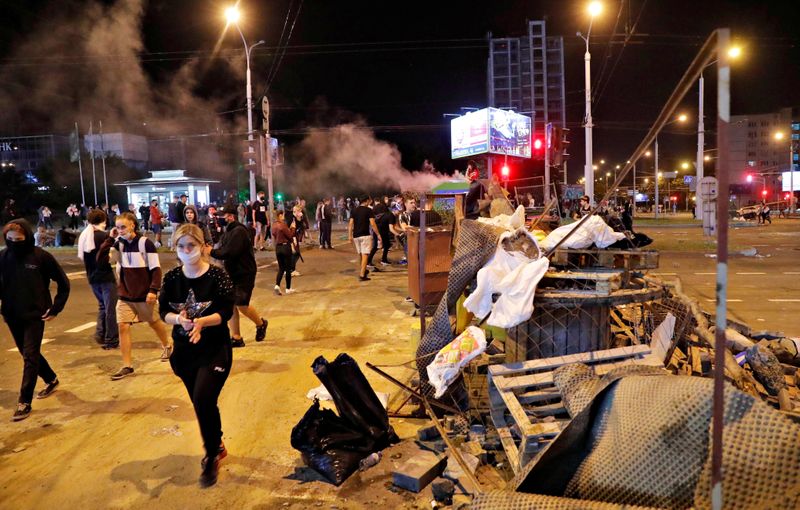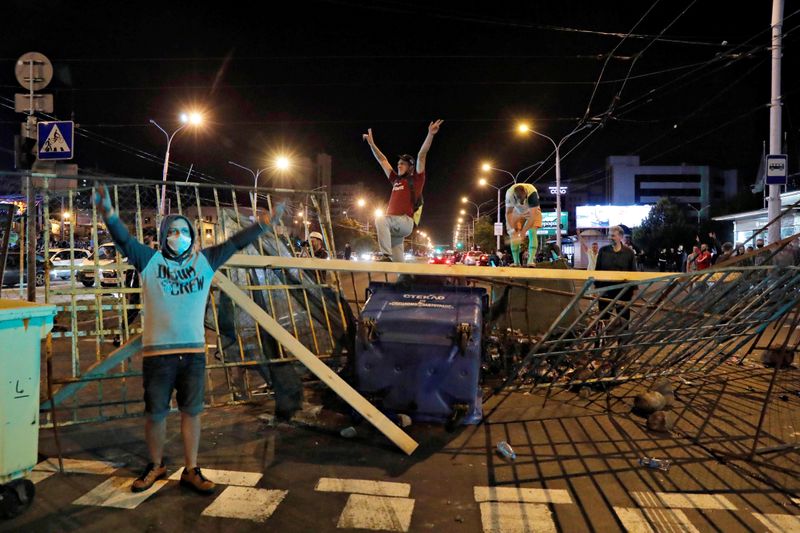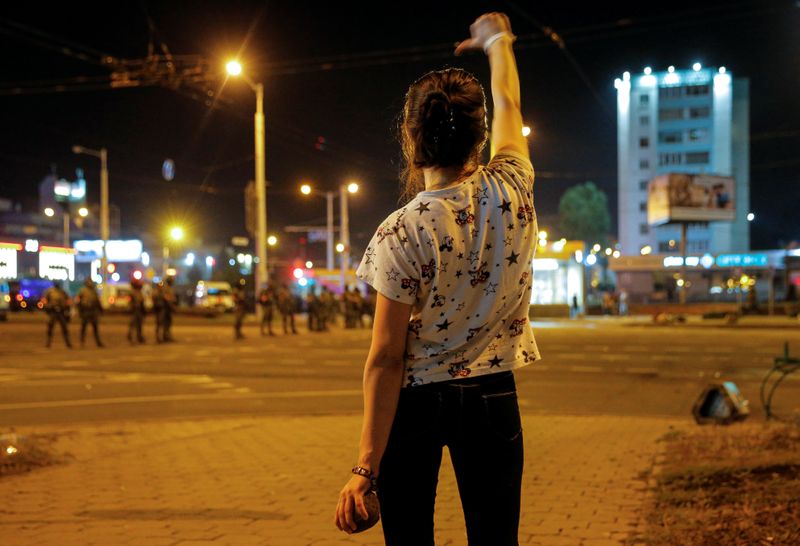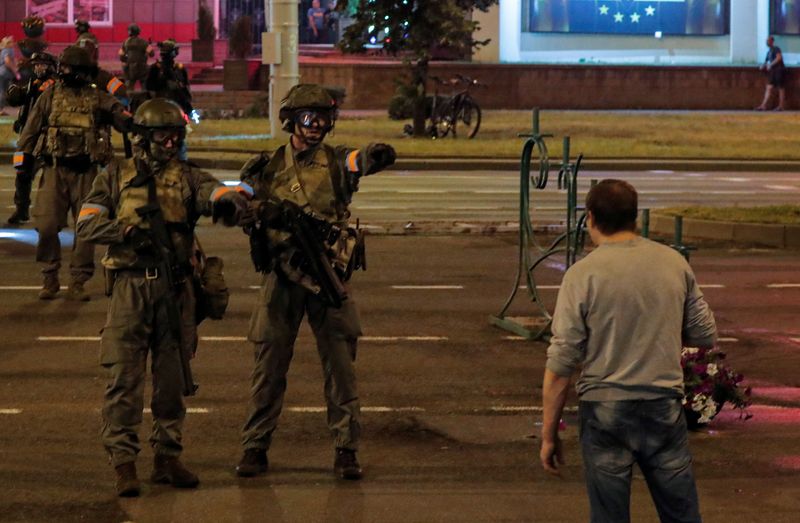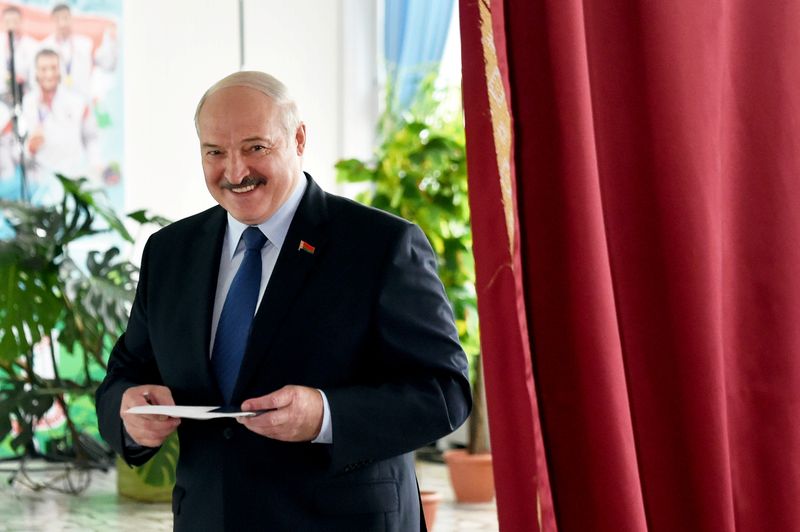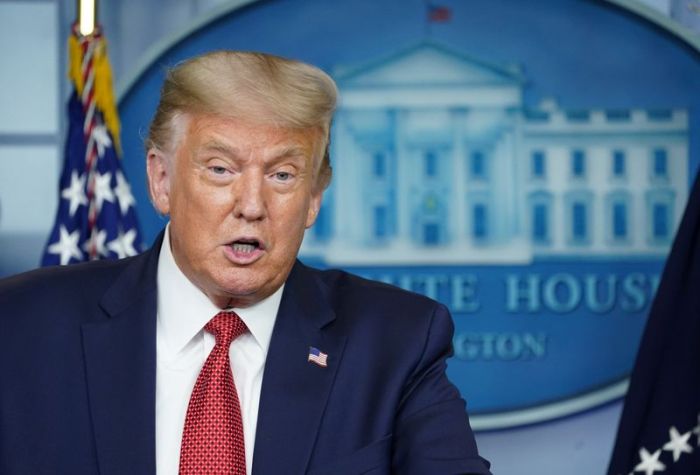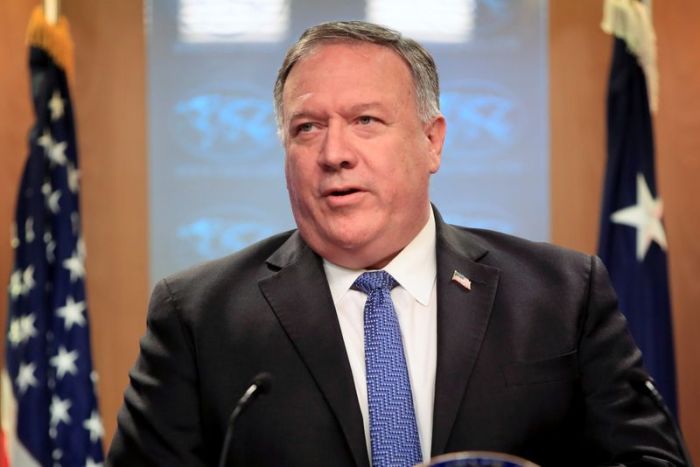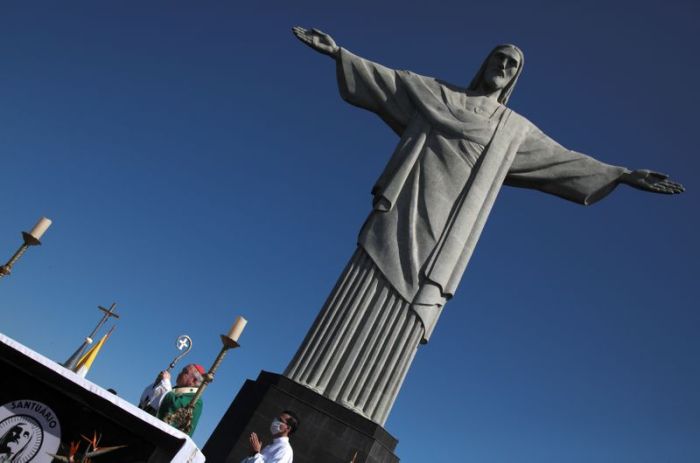MINSK (Reuters) – At least one person died as Belarusian police clashed with protesters on Monday after the opposition accused President Alexander Lukashenko of rigging his re-election victory amid a chorus of criticism from Western leaders.
Helmeted police fired tear gas, rubber bullets and stun grenades and used batons to disperse thousands of people in Minsk in a second night of violence. Protesters set up barricades in several areas and threw Molotov cocktails.
One man died while trying to throw an unidentified explosive device at police that blew up in his hands, the government said. Local media reported clashes breaking out in other towns.
In power for more than a quarter of a century, Lukashenko claimed a landslide win against Svetlana Tikhanouskaya, a former English teacher who emerged from obscurity to lead the biggest challenge to his rule in years.
U.S. Secretary of State Mike Pompeo said the vote was “not free and fair” and condemned “ongoing violence against protesters and the detention of opposition supporters.”
Events are being closely watched by Russia, whose oil exports run through Belarus to the West and which has long regarded the country as a buffer zone against NATO. They are also being monitored by the West, which has tried to lure Minsk from Moscow’s orbit.
Germany called for the European Union to discuss sanctions on Belarus that were lifted in 2016 to foster better relations.
Russian President Vladimir Putin used a congratulatory telegram to nudge Lukashenko to accept deeper ties between the two nations, which the Belarusian leader has previously rejected as an assault on his country’s independence.
Foreign observers have not judged an election to be free and fair in Belarus since 1995, and the run-up to the vote saw authorities jail Lukashenko’s rivals and open criminal investigations of others who voiced opposition.
Tikhanouskaya’s campaign rallies drew some of the biggest crowds since the fall of the Soviet Union in 1991.
Her team were unable to reach her by phone after she left the election commission building on Monday. Earlier she told reporters she considered herself the election winner.
“The authorities are not listening to us. The authorities need to think about peaceful ways to hand over power,” said Tikhanouskaya, who entered the race after her blogger husband was jailed. “Of course we do not recognise the results.”
‘NO REVOLUTION’
The opposition said it was ready to hold talks with the authorities. There was no immediate response to that offer from Lukashenko, a former Soviet collective farm manager who has kept Belarus under tight control since 1994.
He faces discontent over his handling of the economy, the COVID-19 pandemic and human rights abuses. But the president signalled he would not step down.
“We won’t allow the country to be torn apart,” the 65-year-old leader was quoted by the Belta news agency as saying.
Lukashenko repeated allegations that shadowy forces abroad were trying to manipulate protesters he called “sheep” in order to topple him, something he said he would never allow.
“They are trying to orchestrate mayhem,” said Lukashenko. “But I have already warned: there will be no revolution.”
The European Union’s foreign policy chief and its commissioner for enlargement said the election had been marred by “disproportionate and unacceptable state violence against peaceful protesters”.
“We condemn the violence and call for the immediate release of all (those) detained during last night,” Josep Borrell and Oliver Varhelyi said in a joint statement.
Neighbouring Poland wants a special EU summit on Belarus.
(Reporting by Andrei Makhovsky; Additional reporting by Vladimir Soldatkin in Moscow; Writing by Matthias Williams/Andrew Osborn; Editing by Catherine Evans, David Evans, William Maclean and Dan Grebler)

